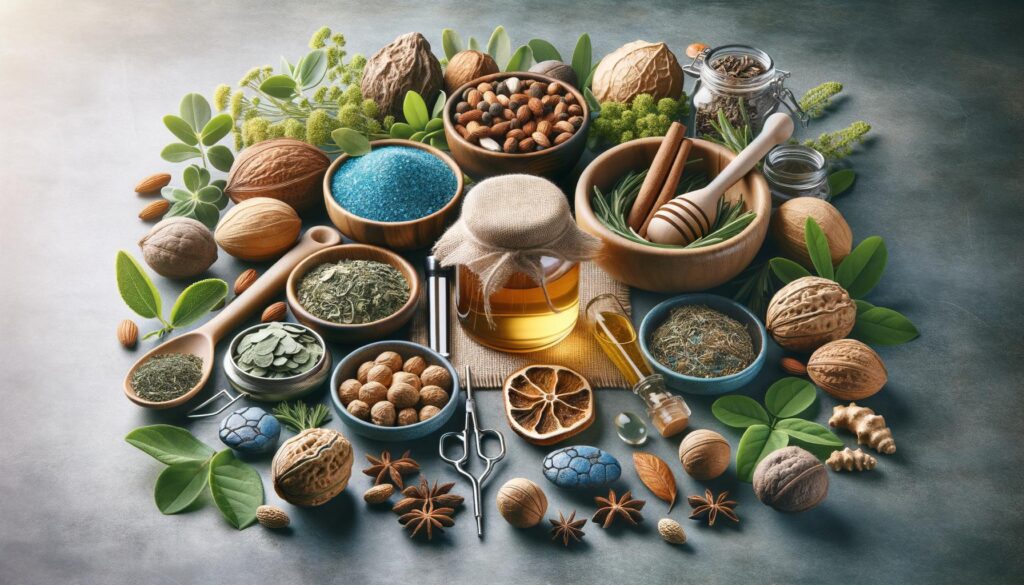Herbs and Remedies for a Healthy Prostate: Natural Ways to Wellness

Understanding Prostate Health
A healthy prostate is crucial for the well-being of men, especially as they age. The prostate gland, situated below the bladder, plays a pivotal role in the male reproductive system, contributing to semen production. Prostate health can be compromised by various conditions, such as benign prostatic hyperplasia (BPH) and prostatitis, which can lead to uncomfortable symptoms like frequent urination and pelvic pain. While traditional medical treatments are essential, natural herbs and remedies often complement these approaches, potentially offering relief and prevention for prostate issues.
The Power of Saw Palmetto
Saw palmetto is among the most renowned herbal remedies for promoting prostate health. This plant, native to the southeastern United States, has been widely used for centuries due to its potential anti-inflammatory properties and ability to alleviate urinary symptoms associated with BPH. Research suggests that saw palmetto may help by inhibiting the production of dihydrotestosterone (DHT), a hormone linked to prostate enlargement.
Benefits of Saw Palmetto:
- May reduce urinary frequency and urgency.
- Potential to decrease nocturia, or nighttime urination.
- Supports overall urological health.
However, while many individuals report positive results, it’s essential to consult with a healthcare professional before incorporating saw palmetto into a wellness regimen, as it may interact with certain medications.
Integrating Rye Grass Pollen
Rye grass pollen extract represents another herb gaining attention for its effectiveness in promoting prostate health. Unlike conventional medications, rye grass pollen may offer a more natural approach to addressing prostate issues.
Key Benefits of Rye Grass Pollen:
- Known for anti-inflammatory properties, helping soothe the prostate.
- May improve flow of urine and reduce the sensation of incomplete bladder emptying.
- Potential to enhance overall quality of life by mitigating BPH symptoms.
Studies have shown that rye grass pollen extract can be a valuable ally in managing mild to moderate symptoms of prostate enlargement.
Incorporating Stinging Nettle
Stinging nettle is a plant enriched with bioactive compounds believed to be beneficial for prostate health. This herb is often paired with saw palmetto to enhance its effectiveness, making it a popular choice in several natural prostate health supplements.
Potential Benefits of Stinging Nettle:
- Could help balance hormone levels associated with prostate enlargement.
- May ease BPH symptoms, such as difficulty urinating.
- Offers anti-inflammatory effects that support prostate health.
Although stinging nettle is generally regarded as safe, individuals should discuss its use with a healthcare provider, especially those taking other prescription medications.
The Role of Lifestyle and Dietary Habits
Alongside the use of herbs, adopting healthy lifestyle and dietary habits can significantly impact prostate health. Nutrition plays a critical role, with certain foods known to support prostate wellness:
- Tomatoes rich in lycopene, an antioxidant linked to reduced prostate cancer risk.
- Green tea, known for anti-inflammatory properties.
- Nuts and seeds for their beneficial fatty acids.
- Broccoli and other cruciferous vegetables that contain compounds supporting hormonal balance.
Incorporating regular physical activity and maintaining a healthy weight are also vital strategies in promoting prostate health. These practices, combined with herbal remedies, create a holistic approach to managing and preventing prostate issues.
Conclusion: Achieving Prostate Wellness Naturally
Prostate health is a crucial aspect of overall well-being that can benefit from a blend of traditional and alternative approaches. Herbs such as saw palmetto, rye grass pollen, and stinging nettle offer promising natural remedies that can complement medical treatments. However, consultation with healthcare professionals is key to ensuring safety and efficacy. By integrating these remedies with a balanced diet and healthy lifestyle, men can take proactive steps towards sustaining prostate health and enhancing their quality of life.
